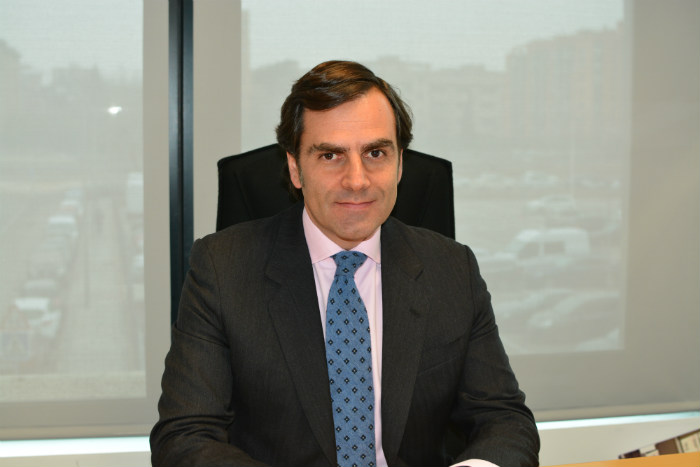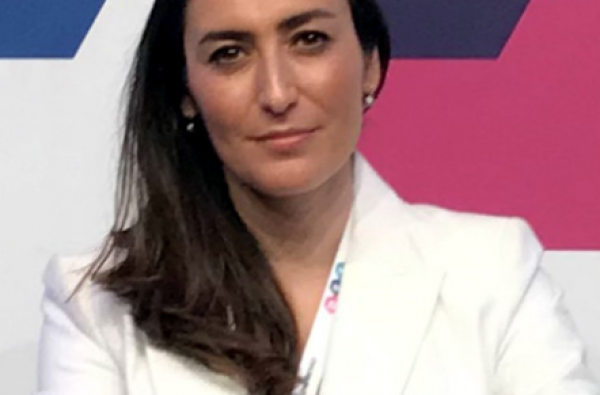While CWT CEO Rafael Sueiro is confident that IA and 'blockchain' will shape the future of business travel management, he says the biggest challenge is not technology, but having skilled workers who understand customer needs.
Although in recent years most companies have restructured their businesses, "travel and event management has not been one of their priorities," laments Carlson Wagonlit Travel (CWT) CEO Rafael Sueiro. However, he believes that improving travel and meetings is key to gaining efficiency. That's why his organization, dedicated to corporate travel and event management, has embarked on the digitization of transfers. "In the end, all the technology applied to travel management is aimed at boosting that efficiency," he says.
In this quest for efficiency, Sueiro highlights the ability, for example, to use predictive analysis to determine the best time to buy a ticket and to use new security models to improve payments. In the future, although she is aware that this is a long process, Sueiro is confident that travel management can be completely virtual, which will result in time and cost savings.
Each year, MIT Technology Review lists the 10 Emerging Technologies with the greatest potential to transform the world. One of the technologies selected in the 2018 list is artificial intelligence (AI) in the cloud, capable of taking it to every corner of the world. How is your industry and your company preparing to tackle these innovations?
The cloud and the lower cost of technologies are democratizing the use of artificial intelligence. It is an incredible opportunity for companies and for consumers, as it will allow things that until now were unthinkable. At CWT we are clear that new technologies are here to stay. So to continue to be leaders in the market, we have a data analysis and innovation team of over 100 people, working on introducing artificial intelligence, predictive analysis, blockchain, chatbots and voice into the world of corporate travel.
CWT is confident that business travel can greatly benefit from these technologies. For example, chatbots help travelers solve their doubts; IA allows maximum customization of travel options; monitoring and predictive analysis of prices allow cost reduction; and thanks to blockchain will be able to track anonymous but accurate luggage, international payments and passenger identification.
The sector of meetings, incentives, conventions, and exhibitions is also changing. Things like having virtual assistants for events and taking advantage of big data applications to observe in real-time what works and what doesn't work in them are already possible.
What benefits is your company experiencing from these new trends?
What is really changing the rules of the game is the possibility of storage and speed of analysis. Hence the ability to exploit an enormous amount of data in real-time to meet the demands of our customers and improve their experience, which is one of the key pillars of our strategy.
Now we can know in real-time, for example, how many of our users are using our services, how they are using them and how satisfied they are. Never before have we had so much information to be able to offer services and products that really add value in real-time, regardless of location.
Are these improvements already reaching your customers?
More than two years ago we launched our CWT 3.0 strategy, focused on customizing our users' experience and supported by technology. Since then, we have launched several products that would not be possible without these new technologies.
We're putting a lot of emphasis on customizing every step of the travel process through big data. We use all the data at our disposal to assist the traveler in making decisions. Our goal is to offer you the optimal options for each moment, so that you can easily and without wasting time decide what you want to do, all under the scope of your company's policies. For example, if a traveler is always staying in hotels close to your office, what's the point of showing him pages and results of accommodations that are not relevant to him?
We are also introducing a flight reservation system that analyses the price of the ticket in real-time and decides whether it makes sense to buy it at that moment or whether it is better to wait because there is a probability that the price will fall in the coming days. In this way, we make sure we buy the ticket at the right time, saving our customers money.
We live in the world of data where it is possible that soon we will have so much information that we will be able to predict absolutely everything. How is this phenomenon being transferred to your sector?
One of the areas where CWT places the most emphasis is on ensuring privacy. The aim is not so much to know what a client wants before they know it themselves, but to make their job easier by offering them all the options available so that they can make the decision that best suits their tastes.
What is clear is that this is only the beginning. Another very interesting area of our predictive analytics focuses on calculating the value of meetings and the return on investment in business travel. For this, we are studying a key parameter: the balance between the welfare of the traveler and the budget of your company.
Until now, the travel policies of companies have not been very dynamic, as we did not have the data or the technology to adapt the rules to the context of the trip. Now we know that, in addition to looking at the price, it is necessary to take into account other factors, such as time lost in connections or the time at which the traveler has to get up to get to the airport. All this allows us to manage trips more intelligently.
These new technologies are favoring the entry of companies, such as Google or Amazon, to sectors to which they traditionally did not belong. How is your company preparing for this entry of new competitors?
CWT welcomes all companies, as we believe that competition makes us better and encourages innovation. We live in an age in which the consumer is the one who has the last decision and will choose the service or product that offers the greatest added value, regardless of the brand.
Google, Amazon, and Netflix have created standards of service and simplicity that people expect in all areas, and that is why CWT is becoming more technological and seeks more simplicity. We know that the competition is just around the corner. We can't expect customers to keep coming to us if we don't offer the best services.
Much has been said about the disruptive capacity of large technology companies, but to be successful in the world of travel, and especially in business travel, much more than good technology is needed. In fact, getting that technology today is not even the most complicated thing. The difficulty lies in having trained staff who understand how the market works and what customers want.

According to the OSCE, more than four million "digital employees" are expected to be missing from the labor market over the next five years. How is your company preparing to overcome this situation?
Lack of qualified personnel in digital skills and reluctance to change are the main stumbling blocks facing any company in transformation. But perhaps the biggest challenge is managing those of us who are not digital natives, who have to transform our skills and adapt to a new way of working. Our strategy is based on attracting and retaining young talent and providing specific training on new tools and technology for the rest of the organization.
We have also moved to a new, more modern location that encourages teamwork and the synergies needed to respond to new challenges.
Incorporating new teams and lines of work requires a profound organizational change. How was this need to innovate transmitted to the board of directors?
CWT's management committee is made up of professionals who know the sector well, are fully aligned and do not fear change. Most have years of experience, have seen the evolution of the industry and are fully aware of what is to come. In fact, the idea of change came from them. We used all available tools to get the message across so that all employees could evolve. Communication is fundamental in these processes.
What is clear is that the sector is transforming. What new capabilities do CEOs need to address these changes?
The role and capacities of the current CEO are changing, as are organizations, which are changing from being very hierarchical structures to other matrix structures in which local and global contrast becomes key. The new CEOs must be people of consensus, capable of leading by example and through influence, and who manage to align people and teams in search of a common objective. Social skills and communication become key aspects that can carry as much weight as purely professional knowledge. Finally, I would mention the ability to learn from mistakes when things do not go as planned.
As CEO, how are you facing these challenges in your organization? What advice would you give to your counterparts?
In my case, I think it's important to be consistent with strategy, lead by example, communicate and never forget that we work with people. In today's complex world, where there are very different hierarchical structures, the ability to influence makes the difference and this is nourished by communication. It is also necessary to be bold and not be afraid to try new formulas, innovate and make decisions. I recommend learning from those companies or entrepreneurs that are innovating, not necessarily in the sector, as there are always aspects and ideas that we can bring to our terrain.
By Editors of the MIT Technology Review in Spanish



